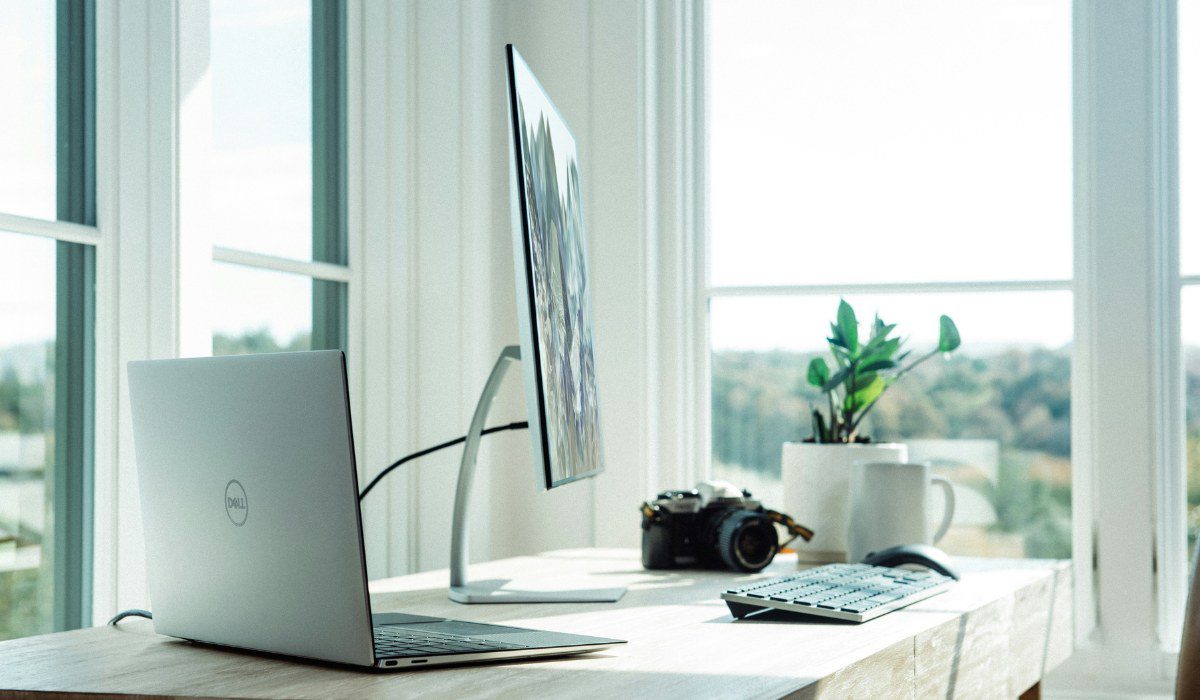Your home office is the hub of productivity and dedication that brings prosperity to your life. Therefore, it is essential to ensure that the energy of this space is conducive to attractive growth and prosperity. Applying the principles of Feng Shui to your home office helps regulate the flow of energy in a way that is best to invite success and wealth. In this article, we will explore some simple Feng Shui tips you can apply to your home office for best results.
See also: Best colours for home office according to Feng Shui
Position your desk properly
The placement of the desk in your home office should be according to the “command position” to promote a feeling of security and control while you are seated there. This means that you should be able to see the entrance to the room while seated, but are not directly in line with the door. Avoid sitting with your back to the door as it is detrimental to the command position, creating a sense of vulnerability and distraction.
Balance elements
A harmonious home environment ideally should have a good balance of all five Feng Shui elements, namely wood, fire, earth, metal and water. Some suggestions to incorporate these elements into your office space include:
- Furniture and plants for wood
- Candles or a small lamp for fire
- Decorative stones, ceramics and an earthy colour palette for earth
- Metallic desk accessories, picture frames or sculptures
- A small tabletop fountain, images of water or a small aquarium for water
Declutter regularly
Alongside creating feelings of overwhelm and distraction, clutter can also hinder the flow of energy in the space. Make sure to keep your desk clear of unnecessary items and organise the space using storage solutions like shelves, drawers and organisers. Regularly review and get rid of papers, files and digital documents that are not of use anymore to avoid piling up of clutter.
Use proper lighting
Ideally, it is recommended to let in ample natural light into your home office as it is beneficial for well-being and productivity. A simple way to do this is by positioning your desk near the window. If the availability of natural light is limited, opt for full-spectrum light bulbs that imitate daylight and steer clear of harsh fluorescent lighting. A well-lit workspace is recommended, but not an overly bright one, as the glare can cause eye strain.
Choose inspiring colours
Since colours play a major role in determining your mood and productivity levels, opt for colours based on the energy you wish to cultivate in your workspace. For example, blues and greens help promote focus, reds and oranges stimulate energy and creativity and neutral tones like beige or light grey can create a balanced and soothing ambiance.
Incorporate plants
Not only do plants improve the indoor air quality, they also promote a sense of vitality and invite positive energy into your workspace. Plants with rounded leaves or soft shapes are recommended as sharp or spiky plants can invite aggressive energy. Enhance the overall balance and harmony of the space by placing plants on your desk, shelves or in corners.
Personalise thoughtfully
Add a personal touch to your workspace by displaying items that inspire and motivate you. These might include artwork, photographs and quotes that resonate with your goals and values. Instead of cluttering your workspace with too many personal items, choose a few meaningful pieces that uplift your spirits and keep you driven.
Ensure comfortable seating
Your chair should provide good support for your back and be adjustable to your height preferences. Such chairs with ergonomic designs help maintain good posture and reduce strain on your body during prolonged sitting periods while working. Enhance comfort and promote proper spinal alignment by adding a cushion or lumbar support.
Reduce noise and distractions
A quiet environment is conducive to concentration, which can only be achieved by minimising distractions as far as possible. Block out distracting sounds by using noise-cancelling headphones or playing soft background music. Get rid of any unnecessary clutter and disturbances in your vicinity that might disrupt your focus.
Balance Yin and Yang
A harmonious mix of both Yang (active) and Yin (passive) elements is necessary to balance the energy in your home office. The Yang elements like your desk area, computer and work tools should be adequately balanced by Yin elements like a comfortable reading nook and a relaxing corner with mello lighting. This also helps support your well-being throughout the workday.
FAQs
What is the best desk position in my home office according to Feng Shui?
The command position, that allows you to see the entrance while being seated but is not completely in line with the door, is the ideal placement for a desk.
How can I incorporate Feng Shui elements into my home office?
Opt for furniture and plants for wood, candles or lamps for fire, earthy colours, stones and ceramics for earth, metallic desk accessories and frames, and a tabletop fountain or a small aquarium for water.
What colours does Feng Shui recommend for a home office?
Feng Shui recommends blues, greens and earth tones for a calming effect balanced with reds and oranges for energy and creativity.
Should I incorporate plants in my home office?
Plants with soft, round leaves improve the air quality and invite vibrancy and positive energy according to Feng Shui.
How important is lighting in a home office?
For your home office, prioritise natural lighting or use full-spectrum light bulbs. Avoid harsh fluorescent lighting and an overly lit space to prevent glare and eye strain.
Can Feng Shui principles help reduce stress in a home office?
Feng Shui principles encourage activities like regular decluttering and organisation, incorporation of calming colours and creating a balanced energy flow, that are conducive to a stress-free environment.
Is there anything specific I should avoid in my home office?
Avoid placing your desk directly facing the wall or in a cramped corner, clutter and excessive decoration and sharp or angular furniture decor to maintain a favourable flow of energy.
| Got any questions or point of view on our article? We would love to hear from you. Write to our Editor-in-Chief Jhumur Ghosh at jhumur.ghosh1@housing.com |







